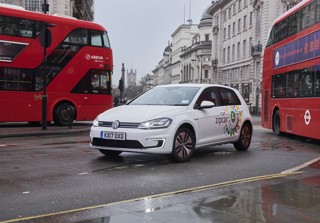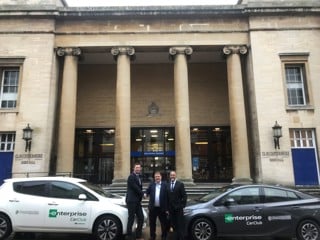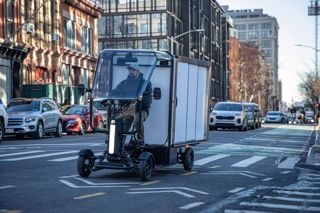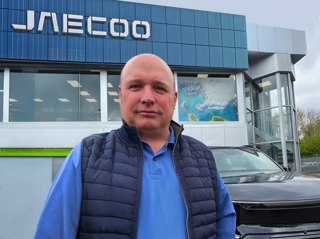Liftshare is on course to save one billion miles from UK roads by March 2020, equivalent to 572,082 round trips from Land’s End to John O’Groats.
With 776 million miles off the roads already, it’s an ambitious target but one that founder Ali Clabburn says is “entirely achievable”.
Back in 1998 as a cash-strapped student needing to get home for the holidays, Clabburn took a chance and posted a note asking if anyone could offer him a lift in return for shared petrol costs.
The success of that initial car share inspired him to set Liftshare up, to encourage and facilitate others wanting to do the same.
Twenty-one years later, Liftshare has grown up into a multi-million-pound company turning over £4.2 million in 2018 and is now the UK’s leading car-sharing scheme provider with over 664,000 registered users.
Liftshare for Business launched in 2000. Its first client was South Gloucester Council, still clients today, now joined by another 700 public and private sector organisations.
For corporate users, the top-line financial savings that can be made through reduced costs in space rental, car park management and maintenance.
Individual savings made by employees are also acknowledged to be a useful tool in staff retention and recruitment, it said.
While cost-saving remains a key motivator for both individuals and companies to sign up, Clabburn believes that the relevance of the business to today’s consumers has to be more about the positive environmental benefits of car-sharing.
“Our mission is to solve the world’s mobility problems through sharing,” he said. “We can achieve this by driving behavioural change, which has a tangible impact on emissions levels and can really make a difference.
“We completely understand that for many businesses and individuals, saving money is what makes car-share schemes attractive in the first instance, but our aim is to encourage more and more users to use it as a way to take responsibility for their own environmental impact. And we support that by operating as a social enterprise, ploughing our profits back into improving the services that we provide.”
Core to the carshare scheme is planning tool MyPTP, which allows users to decide which is the most suitable from a selection of more environmentally-friendly options.
Originally launched in 2008, since 2016 MyPTP has been made available to all registered users, and in that time the tool has been used to generate over 77,000 personal travel.
Specifically for business customers, in 2017 Liftshare also released TripAuthentication to offer reassurance to employers that the scheme is being used as it should be.
Sharers exchange unique QR codes by tapping their phones together at the end of their journey, proving that they have shared and often gaining points towards specific rewards in the process. Technology is also used to issue parking permits
For Wolseley, a plumbing and heating supplies distributor headquartered near Warwick, parking space was in such short supply that the company was forced to rent 80 additional spaces at an annual cost of £1,300 each.
Since the introduction of Liftshare in November 2018, some 224 members have signed up, equating to 60% of the workforce. Forecasts predict savings of over £200,000 in employee parking costs within the first two years of operation.
Tim Matthews, property director at Wolseley, said: “The Trip Authentication tool from Liftshare is invaluable to the better understanding that stakeholders require to make informed decisions about workplace parking.”
Looking to the future, the company has recently begun to offer additional assistance to businesses considering the daily commute with their Scoping Smart Mobility tool.
Using the anonymised postcode data of their staff, businesses can leverage the Scoping tool analysis to make informed decisions about the potential ways their staff could travel based on public transport, active travel and car sharing.
They can then implement policies and initiatives with real-world data to shape their decisions.
It can also be run as an aggregated report for many businesses to give local authorities and employment districts a clearer picture of what is possible and how they can improve the sustainable travel in that region.






















Login to comment
Comments
No comments have been made yet.